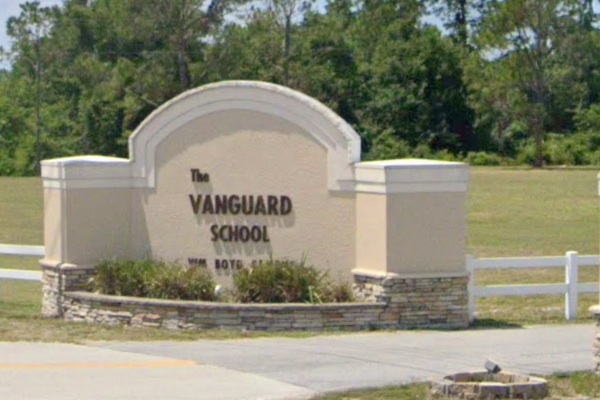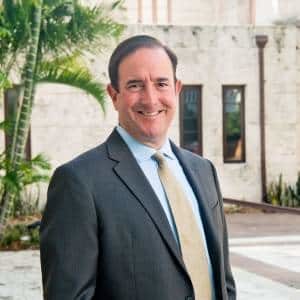
According to Fox 13, after a week-long undercover operation focused on combating human trafficking, more than 200 individuals have been arrested, including a high school teacher and coach.
Russell Rogers of Winter Haven, an athletic director at Vanguard School located at 22000 US Hwy 27, Lake Wales, FL 33859 and a teacher at Auburndale High School REAL Academy located at 300 E Bridgers Ave, Auburndale, FL 33823. Sheriff Judd revealed that Rogers, a married father of three, held the position of head coach at various locations across the county. Sheriff Judd expressed his shock at the situation, stating, "This dude now is coaching in the county jail. I can't believe we want somebody like this around our children."
Following Rogers' arrest, Polk County Schools expressed their disappointment in the employee's involvement in such illicit behavior. While the charges do not directly involve students and Rogers was not on duty as a teacher during the incidents, the school district emphasized that educators are held to a higher standard both in the classroom and within the community. The district affirmed that this kind of conduct has no place in their school system.
Russell Rogers was initially hired by Polk County Public Schools in April 2013 and has been employed at REAL Academy since 2017, serving at the Auburndale campus. He was earning an annual salary of $55,411. In response to the arrest, Polk County Public Schools announced their intention to move forward with the process of terminating Rogers' employment with the school district.
The human trafficking operation led to the arrest of 83 suspects who were apprehended for soliciting a prostitute and traveling to an undercover location with the intent of engaging in sexual activities in exchange for money. Additionally, 17 other suspects were taken into custody, with five of them charged for deriving proceeds from prostitution or aiding and abetting prostitutes, while eight were apprehended for driving the prostitutes to the undercover location.
The arrests made during this extensive operation highlight the commitment of law enforcement agencies to combat human trafficking and ensure the safety and well-being of the community. Investigations into this case are ongoing, and authorities urge anyone with additional information to come forward and assist in the investigation.

After the recent human trafficking operation in Polk County, the pursuit of justice for the victims takes center stage. In this interview, we sat down with Michael Haggard, Esq., a prominent human trafficking attorney and local Florida-based sexual assault lawyer, to discuss how victims of human trafficking can seek justice through civil lawsuits. He explains the available legal options while revealing the challenges victims may face.
Darla Medina (DM): Michael, thank you for joining us today.
Michael Haggard (MH): Thank you for having me, Darla. It's an important topic to discuss, and I'm glad to shed some light on seeking justice for victims of human trafficking.
DM: Absolutely. In light of the recent human trafficking operation in Polk County, many are wondering about the legal recourse available to the victims. Can you enlighten us on how victims of human trafficking can seek justice through civil lawsuits against negligent parties?
MH: Certainly, Darla. Civil lawsuits can play a crucial role in addressing the harm suffered by victims of human trafficking. These lawsuits typically target individuals or entities who may be held responsible for the trafficking or who have directly contributed to the victimization. In the case of a teacher arrested for human trafficking and other sex crimes, the school employing the teacher might also be held accountable if they failed to properly screen or monitor their employees, or if they were aware of any red flags or misconduct and failed to take appropriate action.
DM: Could you explain who these negligent parties might be and how they can be held accountable?
MH: Certainly. Negligent parties can vary depending on the circumstances of each case. They may include traffickers themselves, individuals who facilitated the trafficking scheme, such as recruiters or transporters, or even businesses that knowingly or negligently benefited from the trafficking activities. For example, hotels or establishments that turned a blind eye to suspicious activities on their premises.
DM: So, the school itself can potentially be held accountable for the actions of its employees in such cases?
MH: Yes, that's correct. Schools have a duty to ensure the safety and well-being of their students. If a school neglects its duty by hiring or retaining an employee with a history of misconduct or by turning a blind eye to warning signs, it may be held liable for its negligence. This can include cases where a teacher engages in human trafficking or other sex crimes.
DM: That's an important aspect to consider. What steps can schools take to prevent such incidents and protect their students?
MH: Schools should have rigorous hiring procedures in place, including thorough background checks and proper vetting of potential employees. Additionally, they should establish protocols for reporting and addressing any suspicions or allegations of misconduct promptly. Regular training and education on recognizing signs of abuse or inappropriate behavior can also help create a safer environment for students.
DM: That's empowering for victims. Are there any challenges or obstacles that victims might face when pursuing civil lawsuits?
MH: Absolutely, Darla. Human trafficking cases can be complex and challenging. Victims often face trauma, fear, and various legal hurdles. They may require specialized legal assistance and support throughout the process. However, with the right legal guidance and advocacy, victims can navigate these challenges and seek the justice they deserve.
DM: Thank you for shedding light on this important topic, Mr. Haggard. Your insights are invaluable in understanding how victims of human trafficking can seek justice through civil lawsuits. We appreciate your time and expertise.
 info@legalherald.com
info@legalherald.com